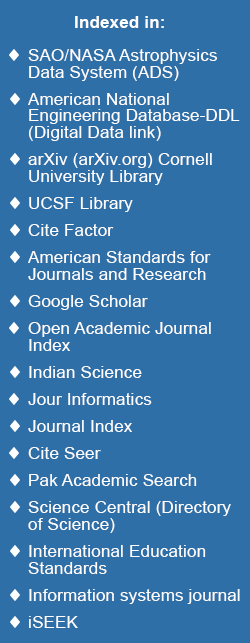ISSN : 2349-3917
American Journal of Computer Science and Information Technology
Abstract Methods: The Key to Abstraction and Polymorphism in Object-Oriented Programming
Yutaka Miyata*
Department of Computer Science and Information technology, Keio University, Tokyo, Japan
- *Corresponding Author:
- Yutaka Miyata
Department of Computer Science and Information technology,
Keio University, Tokyo,
Japan,
Email: yutakamiyata45@yahoo.com
Received date: March 03, 2023, Manuscript No. IPACSIT-23-16777; Editor assigned date: March 06, 2023, PreQC No. IPACSIT-23-16777(PQ); Reviewed date: March 21, 2023, QC No. IPACSIT-23-16777; Revised date: March 28, 2023, Manuscript No. IPACSIT-23-16777 (R); Published date: April 04, 2023, DOI: 10.36648/ 2349-3917.11.4.2
Citation: Miyata Y (2023) Abstract Methods: The Key to Abstraction and Polymorphism in Object-Oriented Programming. Am J Compt Sci Inform Technol Vol: 11 No: 4: 002.
Introduction
Abstract methods are a crucial concept in Object-Oriented Programming (OOP), facilitating the creation of abstract classes and interfaces. They serve as placeholders for method declarations, allowing subclasses to provide concrete implementations. This research article explores the concept of abstract methods, their role in achieving abstraction and polymorphism, and their practical applications in software development. Abstract methods play a pivotal role in achieving abstraction and defining the behavior of classes in an OOP paradigm. They provide a blueprint for methods that must be implemented by subclasses, ensuring adherence to a common interface while allowing for customization based on specific requirements. Abstract methods are method declarations without any implementation details. They are marked with the "abstract" keyword and exist solely to be overridden by subclasses. Abstract methods define the method signature, including the name, parameters, and return type, without providing any actual code block.
Abstract Classes and Interfaces
Abstract methods are primarily associated with abstract classes and interfaces. Abstract classes serve as partial implementations, combining concrete methods with abstract methods. They cannot be instantiated but can be extended by subclasses, which must provide implementations for all abstract methods. Interfaces, on the other hand, are collections of abstract methods. They define a contract that classes implementing the interface must adhere to. By implementing an interface, a class guarantees the availability of specific methods and establishes a common interface for interacting with objects. Abstract methods enable two critical principles in OOP: abstraction and polymorphism. These concepts contribute to code modularity, extensibility, and code reuse. Abstraction refers to the process of simplifying complex systems by identifying and emphasizing essential features while hiding implementation details. Abstract methods facilitate abstraction by defining a common interface that subclasses must adhere to. By focusing on the behavior rather than the implementation, abstract methods allow for the creation of generalized classes and interfaces, making code more maintainable and adaptable to changing requirements. Polymorphism refers to the ability of objects to take on multiple forms. Abstract methods play a key role in achieving polymorphism through dynamic method binding. Subclasses that extend an abstract class or implement an interface can provide their own unique implementations for abstract methods, allowing for different behaviors while adhering to the common interface. Polymorphism enables flexible and extensible code, as objects can be treated uniformly based on their shared interface. This allows for the interchangeability of objects, promoting code reuse and facilitating the creation of modular and scalable software systems.
Abstraction through Abstract Methods
Abstract methods are a vital component of object-oriented programming, facilitating the achievement of abstraction and polymorphism. By defining method signatures without providing implementation details, abstract methods enable the creation of abstract classes and interfaces, ensuring adherence to common interfaces while allowing for customization and specialization in subclasses. Abstraction and polymorphism, enabled by abstract methods, contribute to code modularity, extensibility, and code reuse. They promote clean and maintainable code by hiding implementation details and providing a clear separation of concerns. Abstract methods find practical applications in various software development scenarios, allowing for the creation of flexible and adaptable systems. Understanding and effectively utilizing abstract methods empower developers to design robust and scalable software solutions, facilitating the development of complex systems while maintaining code integrity and flexibility.

Open Access Journals
- Aquaculture & Veterinary Science
- Chemistry & Chemical Sciences
- Clinical Sciences
- Engineering
- General Science
- Genetics & Molecular Biology
- Health Care & Nursing
- Immunology & Microbiology
- Materials Science
- Mathematics & Physics
- Medical Sciences
- Neurology & Psychiatry
- Oncology & Cancer Science
- Pharmaceutical Sciences
